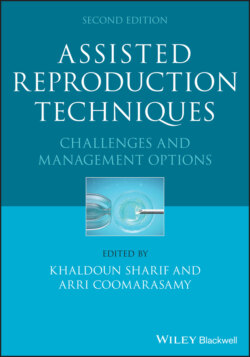Читать книгу Assisted Reproduction Techniques - Группа авторов - Страница 157
Risk from immunosuppression
ОглавлениеRenal transplant recipients require lifelong immunosuppression to prevent graft rejection [1]. Women should see their renal physicians before undergoing fertility treatments to ensure that their immunosuppressive treatment regimens are not teratogenic. All immunosuppressive drugs used in renal transplant recipients cross the placental circulation to the fetus [18].
Calcineurin inhibitors such as tacrolimus and cyclosporin are considered safe in pregnancy. The blood levels of these medications in neonates are approximately half of what is found in the woman [19]. The incidence of major congenital structural abnormalities in women using calcineurin inhibitors are comparable to the general population [20]. However, there are still concerns that calcineurin inhibitors may cause problems with neurodevelopment and increase the risk of childhood cancer [21,22]. Developmental delays have been found in 16% of children who were exposed to cyclosporin in utero [23]. From an obstetric perspective, there is also now evidence that cyclosporin use increases the likelihood of obstetric cholestasis. Therefore, all pregnant women receiving cyclosporin should be closely monitored from the second trimester for the development of this condition [24].
Azathioprine is also considered to be safe in pregnancy as the fetal liver lacks the enzymes to convert the drug into its active metabolite thioinosinic acid [25]. The fetus is therefore protected from its adverse side effects. Corticosteroids such as prednisolone and methylprednisolone have been found to cause fetal adrenal suppression and cleft palate at high maternal doses. They are considered to be safe in pregnancy if being used for immunosuppression or to treat allograft rejection [26]. Mycophenolate mofetil (MMF) is teratogenic, causing increased risk of miscarriage (49%) and congenital malformations (23%) such as limb anomalies, cleft palate, congenital heart defects and congenital diaphragmatic hernia [27] MMF should be stopped six weeks prior to pregnancy [28].
